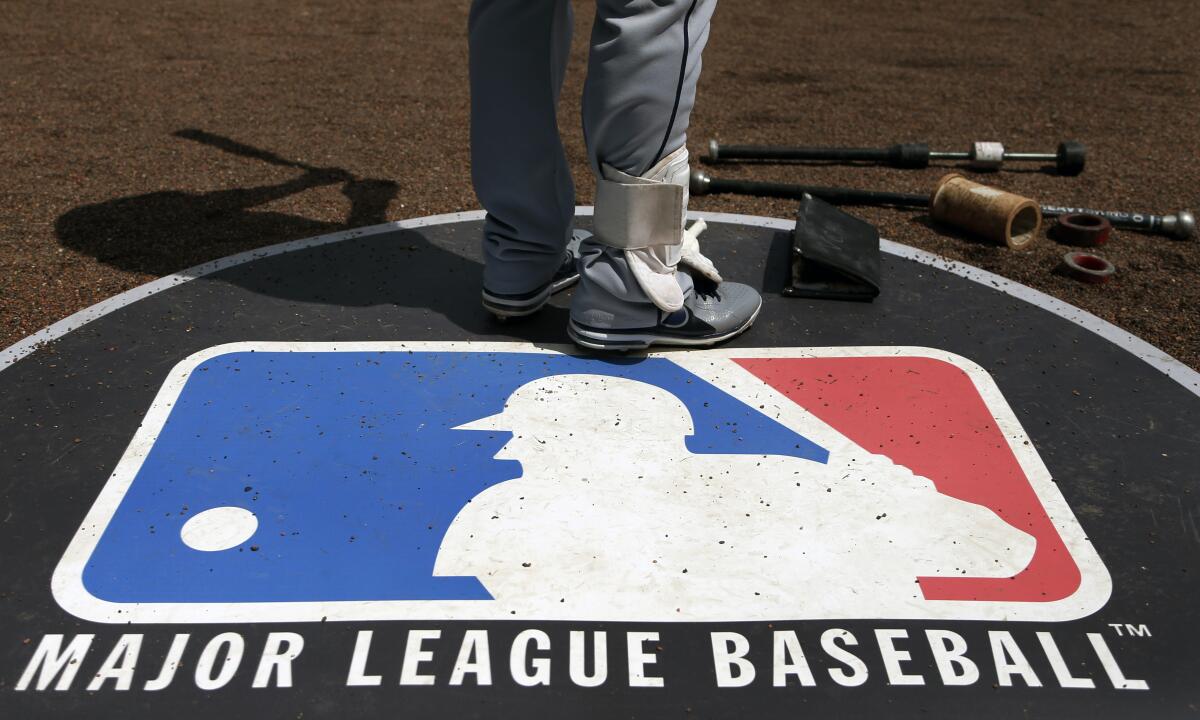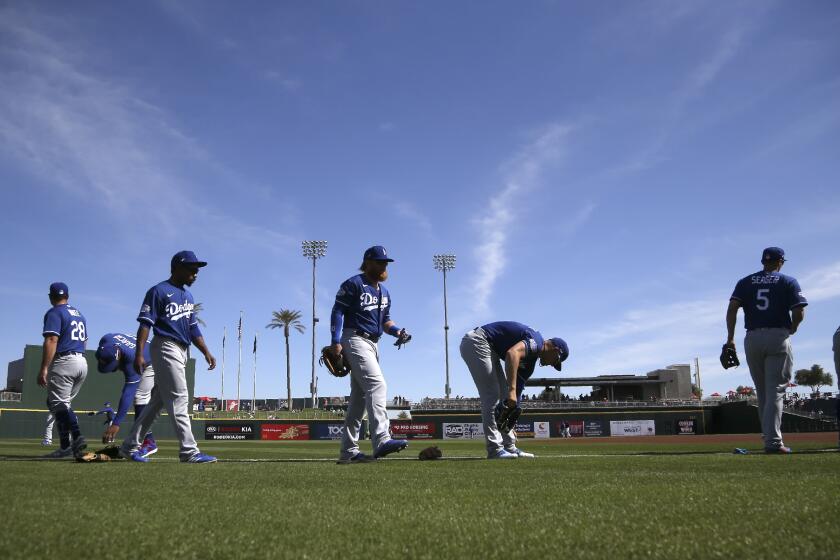Commentary: How a 22-team playoff could help get MLB back on the field

- Share via
Major league players have held firm: We get prorated salary for any games we play this year, because it’s in our agreement with the owners.
Team owners have held firm: We decide how many games to play, because it’s in our agreement with the players.
And so, on the day the NBA is expected to announce its comeback plan, MLB is at a stalemate. We are here to offer a resolution: a postseason tournament named in honor of Billy Beane, the Oakland A’s executive widely credited with calling the playoffs a crapshoot.
There is nothing legitimate about a 50-game season. The Washington Nationals started last season 19-31, then won the World Series.
But, for this one bizarre summer, let’s embrace the crazy with a 50-game regular season, followed by a 22-team tournament: the Beane Invitational, with an autographed copy of “Moneyball” to the winner.
Major League Baseball has discussed playing a schedule of only about 50 games while agreeing to pay players the prorated salaries they demand.
On Wednesday, the day the league notified the players it was proceeding with a plan for a truncated season, the union shot back that it must approve the expanded playoff format owners say would generate interest and revenue for the sport.
The league proposes 14 teams in the postseason, up from the current 10. We’ll go with 22 teams because this entire season would be a crapshoot.
In each league, 11 of the 15 teams would qualify for the playoffs, with each team seeded by record regardless of division. The first seven teams would be slotted into a preliminary round, with the other four teams playing a single-elimination tournament for the eighth slot.
The winning teams in the best-of-five preliminary round would advance to a best-of-seven division series, and from there the league championship series and World Series would take place as usual.
The owners essentially told the union this week the league has budgeted a little more than $1 billion for salaries, regardless of whether the players prefer 50 games at prorated salaries or 82 games at an additional pay cut. While fans are not expected to attend games for most if not all of this season, the union does not accept the league’s assertion that it would lose $640,000 for each fan-free game played with prorated salaries.
In wake of George Floyd’s death, Dodgers manager Dave Roberts blamed U.S. leaders for not doing enough when it comes to stopping racism.
What the owners treasure most is the postseason, when television dollars are the greatest. In a May 12 presentation to the union, the league said it would make $787 million in postseason television revenue, according to the Associated Press.
With the 10-team format, the maximum number of postseason games is 43, with nine of the clinching games that networks covet. With our 22-team format, the maximum number of postseason games would be 75, with 17 clinchers.
Under the current setup, MLB averages $18.3 million for each postseason game. Under its current contract, ESPN pays $7.7 million for each of the 91 games it broadcasts each season, only one of which is a postseason game.
Ed Desser, a sports media consultant and the former president of NBA TV, said the additional postseason games could represent a “glut” that could depress the value of each one, particularly since the extra inventory would be early round games. However, he said, “Anything that’s called playoffs and is on in the fall will be more valuable than your average regular-season game.”
Let’s say MLB can sell our 32 new postseason games for $10 million each. That additional $320 million would increase the total postseason television revenue to $1.1 billion.
The owners and the players ought to be able to figure out a fair split. Let’s get on with the season, and with a wacky postseason.
More to Read
Go beyond the scoreboard
Get the latest on L.A.'s teams in the daily Sports Report newsletter.
You may occasionally receive promotional content from the Los Angeles Times.













